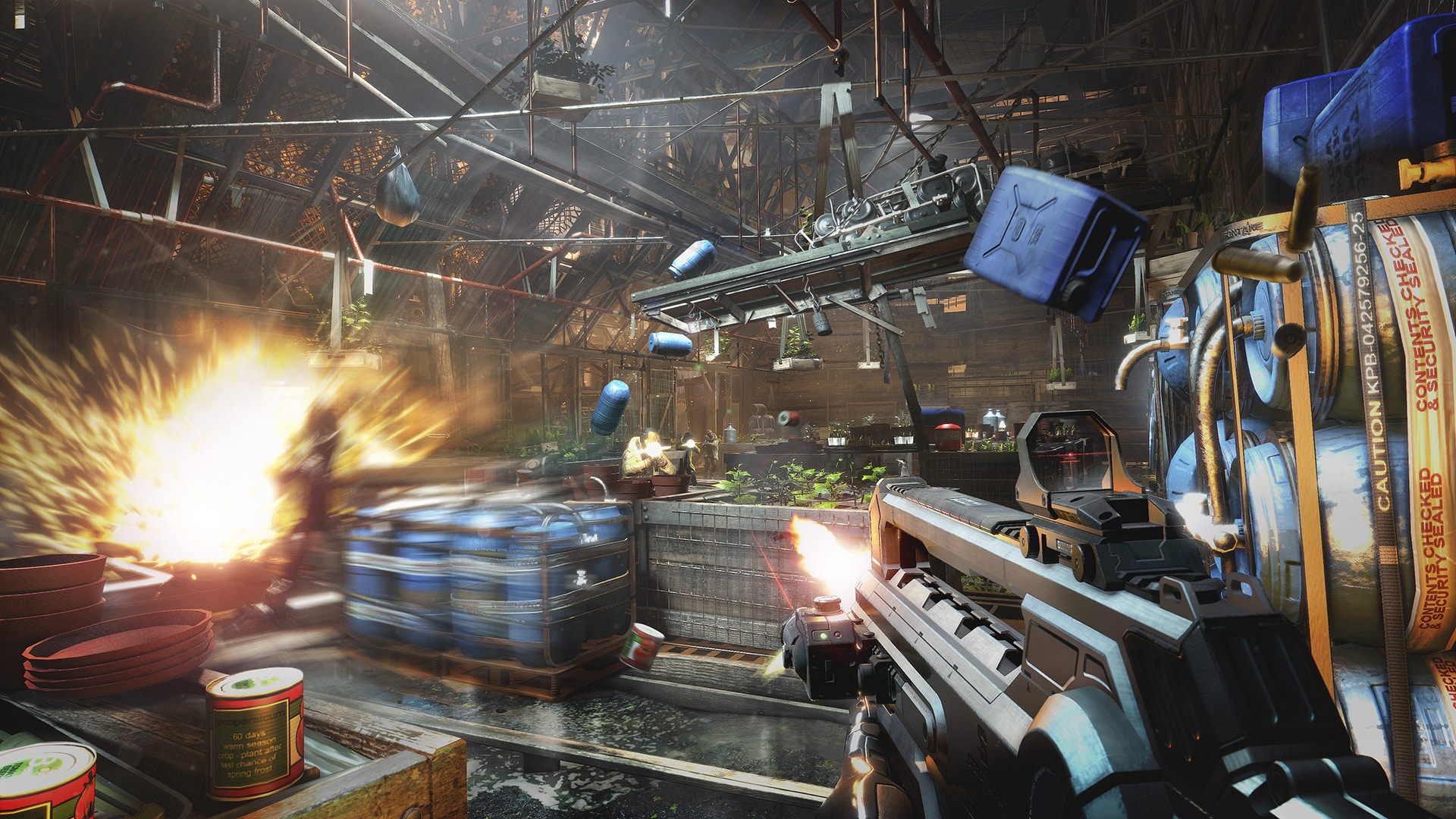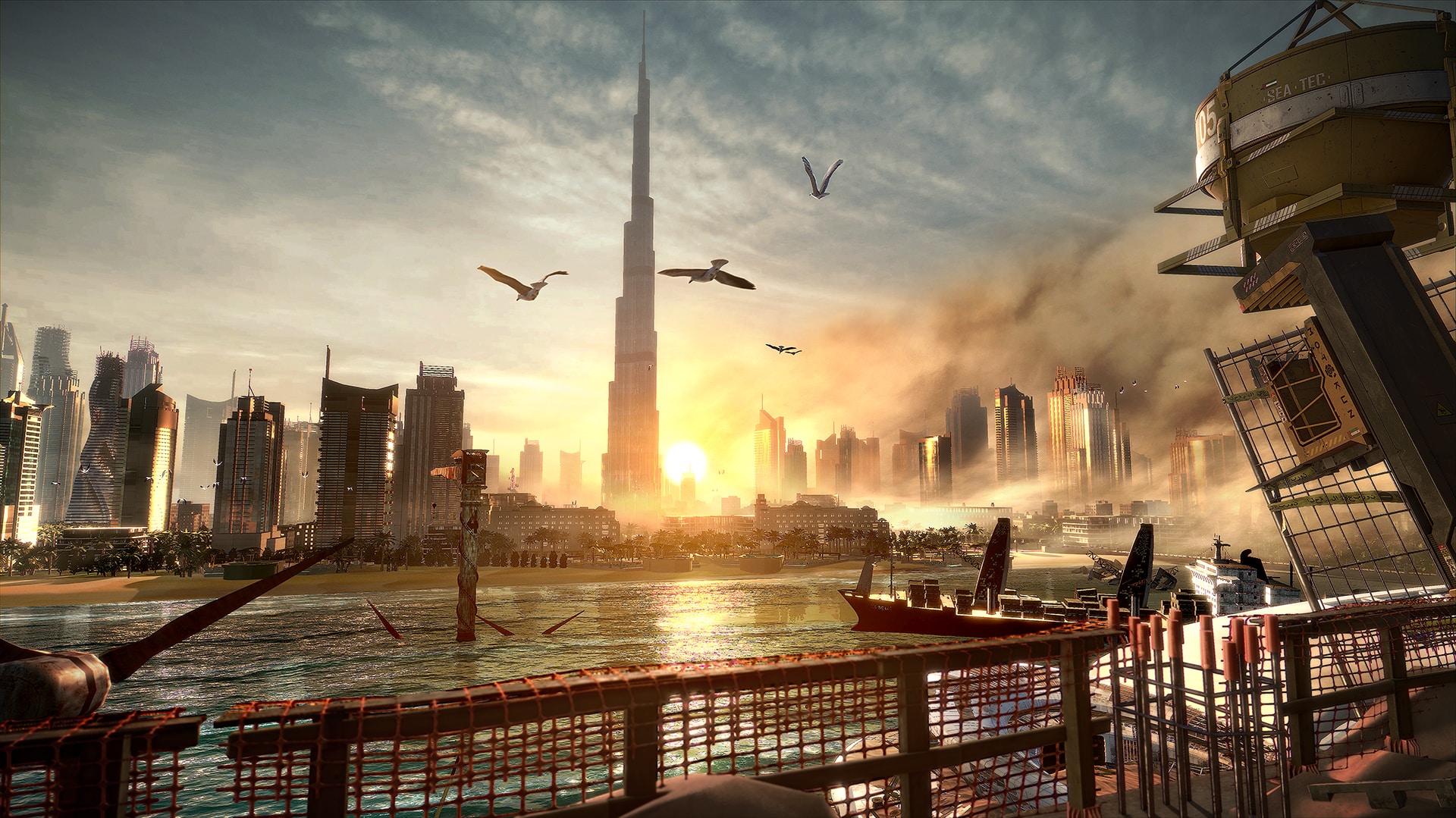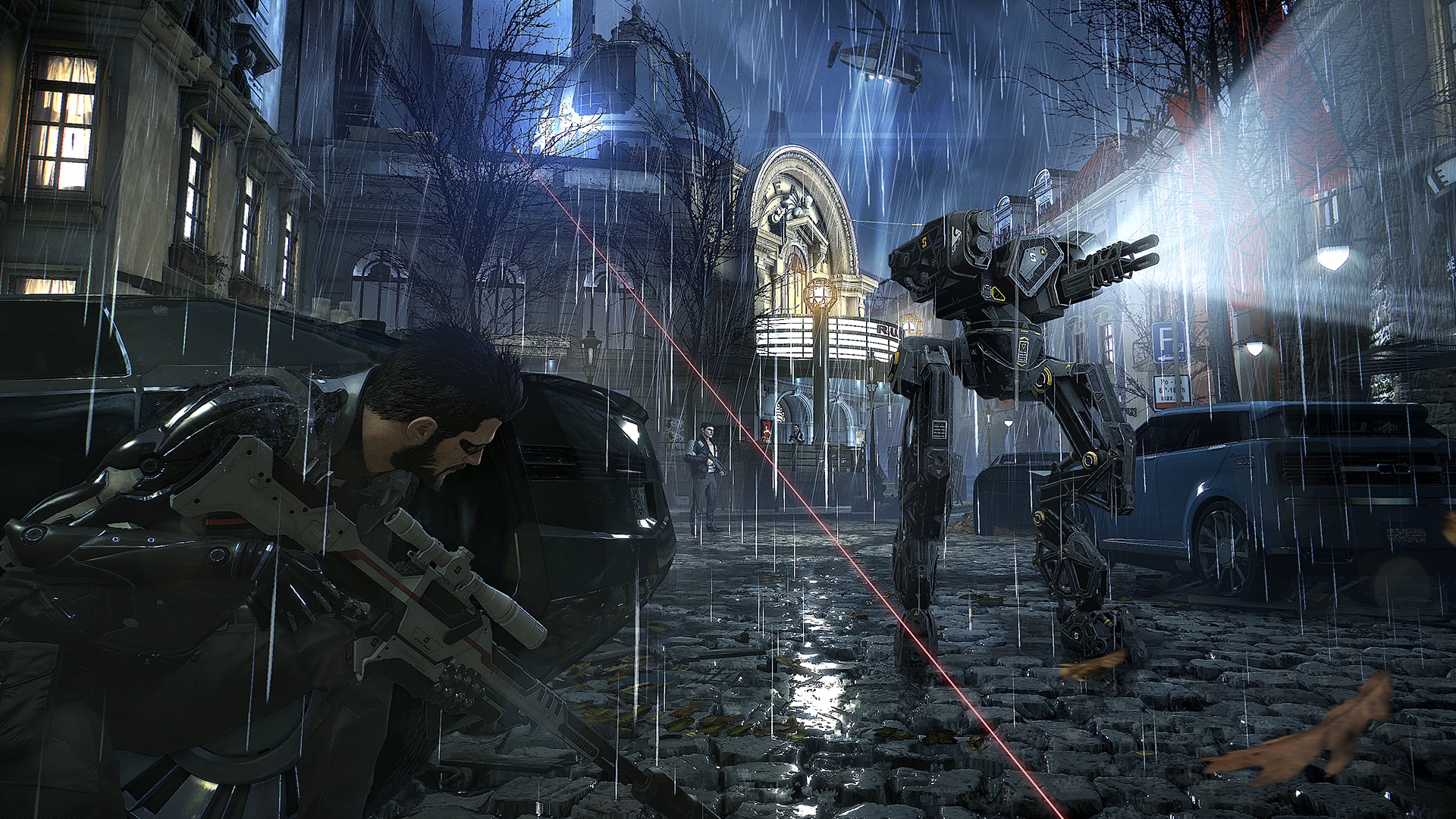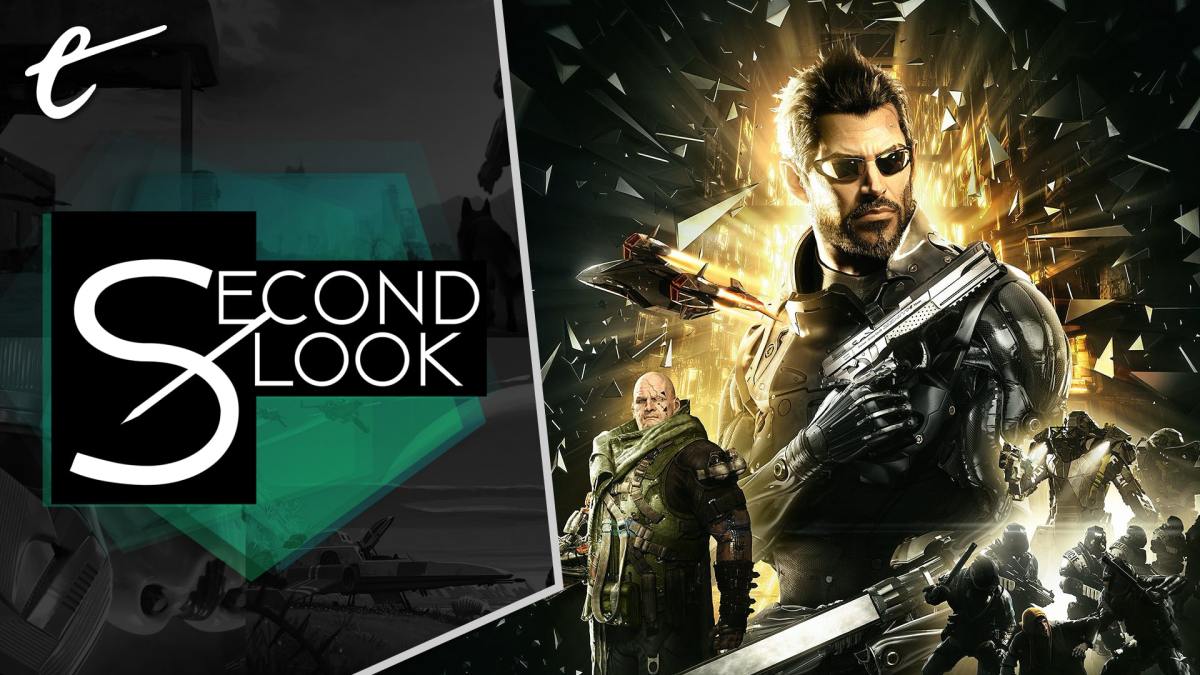Deus Ex: Mankind Divided is perhaps one of the most contentious “sequels” of its console generation. It’s a midpoint cliffhanger in a trilogy that clearly wasn’t originally planned as a trilogy. However, I took delight in voraciously exploring every sidequest and point of interest and fiddled with some of the divergent outcomes for a few narrative branches. I was able to find the joy in Mankind Divided by acknowledging it’s not a full-blown sequel — it’s a modern take on the expansion pack.
In fact, I’d say it’s a damn good one, and better for it. For the youngins, back before the days of DLC, we got standalone expansion packs. They weren’t quite full games, but they also weren’t $10 hour-and-a-half epilogues. You got something meaty, meaningful, and experimental. It wasn’t a wholly new ride, but it had just enough to keep things fresh. This describes Deus Ex: Mankind Divided fully, though none of that diminishes the accomplishments of Eidos Montreal here.
Back when Mankind Divided released, a lot of its themes about prejudice against minorities and corruption of justice were contested as ingenuine, but after the last five years, it’s unnerving how hard the game hits. Set two years after the events of Deus Ex: Human Revolution, Mankind Divided is a world worse than you left it, which is saying something. Despite protagonist Adam Jensen having done everything in his power to undo the machinations of the Illuminati, all he’s accomplished is changing the faces of the world’s oppressors.
With a new villainous council set on wiping out augmented people from the shadows, the time has come for a more proactive tact. Adam is taking the fight to them through their own favorite methods of deception and manipulation. Taking place primarily in Prague, Mankind Divided is like one giant crime scene where you can tip the scales any number of ways. Playing a double agent this time round, Adam is inserted into Interpol’s Task Force 29, while really serving as an operative for the hacktivist Juggernaut Collective.

Besides those two dueling allegiances, he also has to navigate an anti-aug state police force, the pro-aug ARC group (who may or may not be harboring augmented terrorists), the local Dvali crime family, two rival news organizations, and operatives straight from the Illuminati. Your choices impact not only all of these groups, but the civilians caught in the crossfire. It’s a lot to keep in mind.
Wisely, Eidos Montreal prioritized depth over scale, ensuring that this all is enmeshed into a cohesive sandbox rather than spread thin across multiple locations. It may be a polarizing decision, but focusing so much on Prague lends Mankind Divided some much needed grounding for all the sci-fi conspiracy elements. Human Revolution wowed many by globetrotting across a variety of sandboxes, but many of those environments proved shallow upon further investigation. The reverse is true for Mankind Divided, relying on a central sandbox with smaller, more focused side missions in alternate locales. It makes for less overt novelty, but a much tighter throughline.
Tight and focused best describes Deus Ex: Mankind Divided on the whole. Though the central mystery and the greater ongoing plot surrounding Adam have their twists and turns, what’s truly remarkable is how everything feeds back into the main experience. It feels a bit disingenuous to call some of the optional missions you undertake as “sidequests,” but rather core parts of the story you can choose to either engage with or ignore and deal with the consequences. Several of these offer the biggest payoff both in gameplay and narratively for previous relationships in Human Revolution.

A late-game quest was made substantially easier by accomplishing an earlier, at first seemingly unrelated side tangent. Being precocious in exploring the world can make encounters easier or harder as well. There are more than a few instances where you can cause mayhem or surgically eliminate threats ahead of when the plot calls for it, with acknowledgement of your behavior. This is all expected of a Deus Ex game — of any immersive sim worth its merit — but Mankind Divided does it so well that it’s downright refreshing. It’s immediate, impactful, and tangibly right in your face.
The best immersive sims offer deeper spaces, and like Dishonored 2’s bite-sized mission areas, Mankind Divided packs an immense number of layers both big and small in its single city. Not only vertically, but reactively. A simple shift from day to night wildly alters the landscape. You develop an intimate familiarity with the geography, which proves a genuine gameplay asset more than once.
Deus Ex: Mankind Divided rather wisely changes little in terms of overall controls and core design. However, it does add new augmentations and a better-tuned energy system for your cybernetics. Serving as an on-going subplot, your handful of new abilities (and a few add-ons for old ones) ensure things are exciting without breaking the mold. The Icarus Dash is clearly just Bink from Dishonored. Some of the DLC pack-exclusive augments are also clearly work in progress, like an item disassembly augment — yes, you apparently need an augment to fieldstrip gear — that can smash the difficulty curve by giving you virtually bottomless batteries. Yet others like the knuckle stunner, remote hack, time dilation, and additional HUD elements vastly improve the experience.
This chaotic state of evolution and uncertainty in gameplay embodies not only Adam’s personal arc but Mankind Divided’s greater narrative tension. Each facet feeds back into this sense that you’re just keeping your head above water as it rises by the minute. I was immersed in the most genuine sense by the end, reacting as Adam rather than simply piloting him for a few dozen hours. When shit hits the fan — and it really hits the fan — your new powers and every trick you’ve learned feel less like blessings and more the only things giving you an edge in an endless fight.

What struck a chord with me the most is that this might be one of the first immersive sims where nonviolence isn’t blatantly rewarded as the superior way to play. Instead, there were several horrific events that immediately spurred me to engage in direct conflict. In the end, Mankind Divided surprised in the choices it drew out of me. In the face of corruption everywhere, innocents being trampled by all parties, there’s no objectively “good” path, but I had to hope my choices brought about something better for the characters I learned to care for greatly.
Without a doubt, Mankind Divided’s success lies in being crafted by an experienced team with the knowledge and insight to expand upon what they built before. Yet it’s so rare these days to experience a game of this scale with this much effort. It makes me want more games in this vein. Despite its lackluster final few moments in its epilogue news reel, Deus Ex: Mankind Divided achieves what the best expansions used to. You can experience it on its own and totally follow what’s going on. You can also play it straight after Human Revolution without muscle memory feeling an inch out of step. The additional DLC missions lean even further into this, telling additional episodic side-stories that work both alone and as part of the whole.
I’m not saying that smaller is always better. Days Gone is remarkable in part due to how it uses its immense scale for narrative and gameplay purposes. Spider-Man: Web of Shadows also wouldn’t work half as well without its giant “New York City gone wrong!” setting. However, for something like Deus Ex, I’d be lying if I said I didn’t hope whatever comes next takes notes from Mankind Divided. It captures the essence of the series and inches Adam’s journey into a truly adaptive, living sandbox to play around in.
Except for Breach Mode. I mean, seriously, who was that even for, right?






Published: May 13, 2021 11:00 am